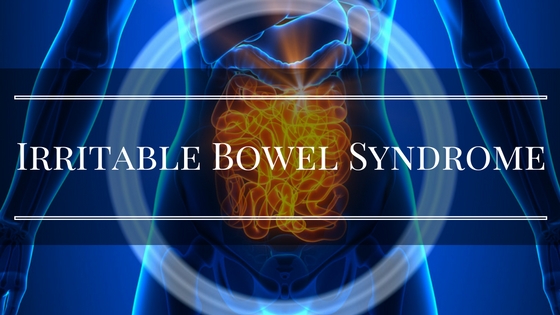Irritable Bowel Syndrome (IBS) is a chronic gastrointestinal disorder. It is also commonly referred to as functional bowel disease or spastic colon. While there are varying degrees of symptoms among individuals, there are some common factors that can contribute to the discomfort that individuals often experience. Learning about the symptoms and possible triggers for the onset of these symptoms can help to more effectively manage the disorder.
The most common symptoms of IBS include:
• Abdominal pain or cramps
• Gas
• Bloating
• Frequent changes in bowel movements, alternating between diarrhea and constipation
IBS-D is diagnosed when diarrhea (loose stools and urgency to have a bowel movement) is a primary symptom, whereas IBS-C is diagnosed when constipation (hard or infrequent stools and straining with bowel movements) is a primary symptom. Interestingly, while indigestion is not considered to be a symptom of IBS, it occurs frequently in those who suffer from this disorder.
While the cause of the condition is unknown, it is generally thought to be a result of abnormal movement within the gastrointestinal tract. Because the gastrointestinal and neurological systems are interrelated (gut-brain connection), communication between the two systems seems to play a role in flair ups. Those who suffer from IBS tend to be highly in-tune with their bodies (i.e. have good bodily awareness), and many affected individuals find that increased stress can bring on symptoms.
A diagnosis of IBS is typically made when gastrointestinal symptoms have been present for at least 3 months. Generally, doctors will order medical tests to rule out other conditions associated with these same symptoms before arriving at a diagnosis of irritable bowel syndrome.
There is no known cure for the condition, yet there are some diet and lifestyle changes that can help to reduce the symptoms of IBS. Namely, identifying and refraining from foods to seem to trigger symptoms is an important part of managing gastrointestinal symptoms.
Common foods that tend to be problematic for IBS sufferers because they often increase gas and bloating include beans and other legumes, and cruciferous vegetables like broccoli or cauliflower. Other helpful diet considerations to reduce symptoms include drinking a healthy amount of water throughout the day, eating foods that are high in fiber, eating smaller portions at mealtimes, and eating a diet that is lower in fat and higher in complex carbohydrates.
Patients who present to urgent care centers with IBS symptoms are often prescribed anti-diarrheal or anti-spasmodic medications to regulate bowel movements. Laxatives are prescribed when constipation is present. There may be times when antidepressants or other psychiatric medications are prescribed for patients as well, given an individual’s presenting symptoms and needs.
Irritable bowel syndrome should not be confused with Crohn’s Disease or Ulcerative Colitis. These gastrointestinal disorders involve inflammation and damage to the intestinal tract, requiring proper medical management to prevent worsening of the conditions.
Keep in mind that symptoms such as blood in the stool, black or tarry stools, vomiting, fever or abdominal pain or bowel movements that interfere with sleep are not characteristic of IBS. These symptoms may be the result of a more serious illness and require further medical evaluation. Your doctor can best determine the cause of your presenting gastrointestinal symptoms and prescribe the most appropriate treatment.

